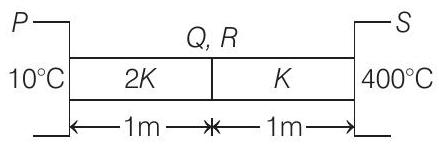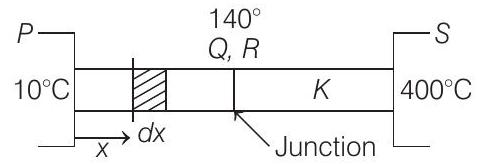Heat and Thermodynamics 2 Question 3
6. The ends
(2016 Adv.)
(a)
(b)
(c)
(d)
Show Answer
Answer:
Correct Answer: 6. (a)
Solution:

Rate of heat flow from
Rate of heat flow from
At steady state rate of heat flow is same
or

Temperature of junction is
Temperature at a distance
is
Change in length
Then,






